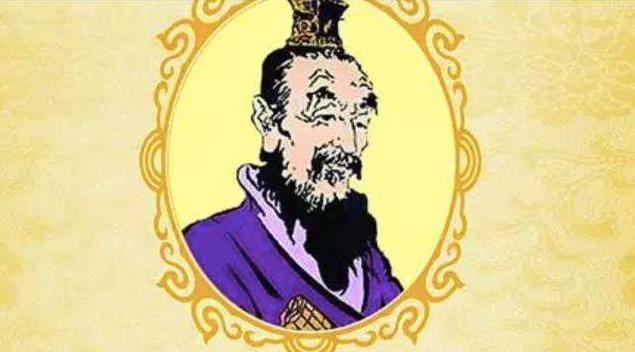
In the pre-Qin TV series, you may have seen the titles of Xiangguo and Xiangbang; and in chess, there is a "Xiang" character, which refers to the prime minister, which is the honor of a hundred officials, and also refers to the civil officials in the imperial court; in the "Romance of the Three Kingdoms", Cao Cao became a minister after a lot of fighting. What is the difference between Xiangguo, Xiangbang, Prime Minister, and Xiangxiang?
According to expert research, in the pre-Qin period, there were names such as Xiang and Xiangbang, but it was different from the position of Xiangxiang, because the excavated cultural relics of the Qin Kingdom Dongling artifacts were engraved with gold texts: Eight Years Xiangbang Xue Jun, Xiang Xiang. This proves that Xiangguo and Xiangxiang are two completely different official positions, and they coexist at the same time, and after expert examination: Xiangxiang is the deputy of Xiangbang, and the status of Xiangguo is higher than that of Xiangxiang.
The prime minister first originated in the Spring and Autumn Period. During the Qin Dynasty, the official name of the prime minister was Xiang Xiang, and the official position of prime minister lasted about 1500 years. It is said that Shang Tang took Yi Yin as the xiang, and King Wu of Zhou appointed Zhou Gongdan as the dazai, and the descendants combined the two positions of "dazai" and "xiang" to create the term "zai chancellor".
Among all the official positions, the prime minister has the most changes, which is because the monarch needs the help of the prime minister to handle political affairs, but also fears that the power of the prime minister is too heavy and endangers his own power, so he often changes his name and responsibility to facilitate the emperor to manipulate them. Therefore, although the prime minister is noble, one person is above ten thousand people, and it is also a very dangerous position.
In June 208 (the thirteenth year of Jian'an), Cao Cao deposed the Three Dukes, restored the system of chancellors, and made himself chancellor of the Han Dynasty. In fact, this chancellor has not yet reached the level of usurping the Han Dynasty, and even Zhuge Liang is also called the Shu state chancellor, so although the chancellor is an extremely popular subject, he has not yet had the intention of usurping the throne. Therefore, Xun Yu, who supported the Han Dynasty, was acceptable to Cao Cao as a chancellor, and once Cao Cao was the Duke of Wei, Xun Yu could not accept it.
Cao Cao called him the Duke of Wei, which was not the same as the "Duke of Guo" at the beginning of the Northern Zhou Dynasty. The duke cao cao called was not a title, but a duke with a fief. There are actual feudal dukes, in fact, they are on an equal footing with the monarch, somewhat similar to "wang", the Han Dynasty is not Liu Bu wang, so Xun Yu can't see cao Cao called the Duke of Wei.
The earliest historical book to record The History of Qixiang is the "History of Qin Benji", the second year of King Wu of Qin, "the initial position of The Minister, the disease of Lili and Ganmao as the left and right Ministers". After Qin Shi Huang unified the Six Kingdoms, he also set up left and right ministers, such as Xiang Xiang Li Si, who really began to be well known on the historical stage. At the beginning of the Han Dynasty, the Xiangguo system of the pre-Qin period was adopted, but then the Xiangxiang soon replaced the position of xiangguo, and the Xiangxiang during the Han Wudi period was listed as one of the Three Dukes, until the Han Emperor period, the Xiangxiang was changed to the Great Sima (大司馬).
At the end of the Eastern Han Dynasty, Cao Cao once again proposed the establishment of the position of chancellor and recognized himself as a chancellor. Cao Cao was now filling the old bottle with new wine, and he did not like the old name very much, but wanted to use it to establish his prestige, that is, to see who dared to oppose himself to do whatever he wanted. Therefore, at this time, the power of the chancellor can be said to exceed that of the county lord Han Xiandi.
The biggest difference between the prime minister and the prime minister is that the prime minister does not specifically refer to a certain kind of official position, and anyone who assists the king and holds the highest power in the court (or a group of people) can be called the prime minister. Therefore, the prime minister is not necessarily the prime minister, but the prime minister must be the "prime minister," which means "dominating everything." "Phase" is an auxiliary, "Zai" is the master, and the ostensible meaning of the prime minister is destined to be a position above ten thousand people under one person.
The chancellor is a specific official position, and the responsible functions in different dynasties are different, and are not necessarily the most powerful officials. Later, the prime minister was not necessarily the most powerful official, but became a common name, and those who assisted the emperor and the high-ranking officials in charge of state affairs could be called the prime minister, such as the prime minister Liu Luoguo.
Zhu Ziqing's father lost his official concubine and died of his grandmother, why did Zhu Ziqing still write "Back Shadow" to praise him